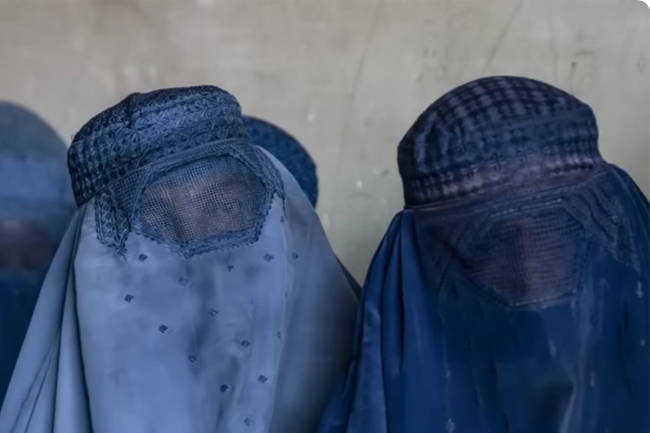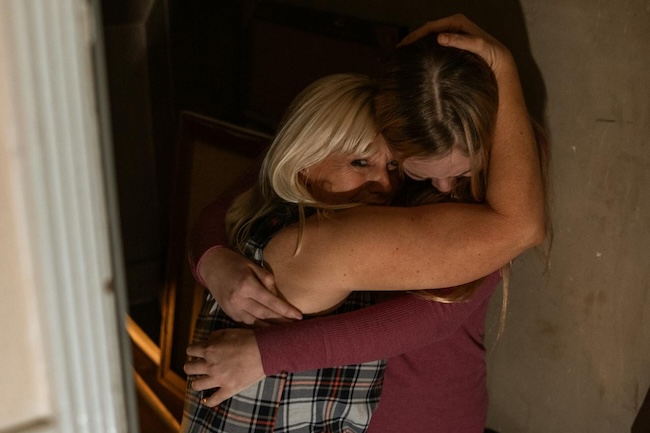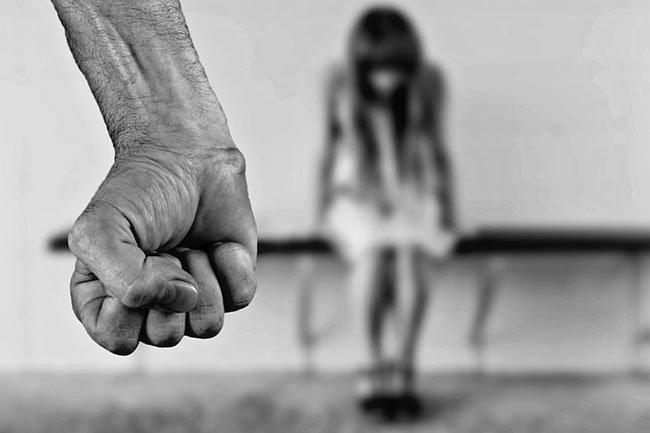Walking down a main street of one of the largest town in Colombia’s Amazon region, I felt the lecherous stares of the soldiers on me.
They were lined up down the street, supposedly on guard. Though as I walked past each one of them, I felt anything but safe. Every one of them leered and made a disparaging comment as I walked past them. I grimaced and felt the anger well up inside me. After almost a year in Colombia, I was tired of this.
As I walked past the last soldier, he too leered and made a disparaging comment. Fed up, I turned around and snapped at him to stop. His eyes narrowed into a sneer and he laughed. The disrespect was blatant, as was the apparent joy he was getting me from harassing me.
I decided to go and look for help, I had enough. I found a policeman and after explaining what had happened, he agreed to come and help me. As we approached the final soldier, the smile quickly disappeared from his face. The policeman asked him why he had been harassing me and then he told him to stop. The soldier mumbled an excuse and looked down ashamed.
Later that day as I walked back past the soldiers later to go home, none of them said anything to me. Though I know that this was not out of respect to me but because they had been told by a male police officer to leave me alone.
The experience was typical of my one year in Colombia. I faced almost daily, incessant harassment from the males around me. Moving through the streets or on public transport, I was met with lecherous stares and catcalling, which was unrelenting for the most part. It would happen throughout the day, every day. It made me feel uncomfortable and, in many cases, made me not want to go into the public space.
I was in Colombia to conduct fieldwork as part of my doctoral research looking at the militarisation of children who had joined the former armed group the Fuerzas Armadas Revolucionarias de Colombia (FARC). I was to spend six months working in a reintegration home for former child soldiers and then another six months travelling throughout the country, speaking with people who had either been directly involved with the conflict or who had lived amongst it.
My aim was to find out more about what it was that made children join armed groups.
When I arrived in Colombia, the country was in the middle of a peace process. Active fighting between the biggest armed group the FARC and the government was supposedly on hold while negotiations took place in Havana. However, other armed groups were still active in the country including the ELN and the various paramilitary groups. Drug traffickers and smaller armed criminal gangs known as BACRIMS were also prevalent throughout the country and all posed a threat — all of which made conducting fieldwork, tricky.
Though aside from these challenges, it was the sexual harassment, such as that I experienced with those soldiers that day, that I found to be one of the most difficult and uncomfortable aspects of the fieldwork. It was everywhere.
The harassment or the threat of it made me feel worried about who I was speaking with and where I spoke with them. Moving from research site to research site was often fraught with discomfort because of the disparaging behaviour from the males around me. I felt powerlessness, vulnerable and disrespected, which was most likely the point. The sexual harassment was intended to show me that as a woman, I was second-class, a sexual object.
While working in the reintegration centre, I lived in a small room where the offices of the organisation were located. The centre was located in a neighbourhood where violence and gangs were commonplace. The neighbourhoods in these areas were separated by invisible borders in which the armed groups vied for control.
Having control over territory meant having control over the drug trafficking routes and the ability to extort the local businesses. This made competition over territory hot and the gangs suspicious of those they did not know. Entering a neighbourhood where you were unknown or did not have permission to be, could get you killed.
Sexual harassment was a big problem in these neighbourhoods. A group of BACRIMS would loiter out the front of the rehabilitation centre and would leer and catcall each day as I walked past. It made me extraordinarily uncomfortable, despite the reassurances from some of the ex-combatants that they were good people and that, "they only kill bad people".
There were also about 300 boys from the street living at the centre who had come from some of the poorest parts of Medellin and were there to get shelter, food and some basic education.
It was these boys who became one of my biggest sources of harassment, despite the fact that I was more than twice their age. Each day as I left my room, I would face a barrage of lewd stares and inappropriate comments. On several occasions, I was grabbed inappropriately by the boys, which was always done with great amusement.
I would make complaints to the "educators" who were in charge of looking after the boys. However, they often shrugged their shoulders and said, "You’re blonde so what do you expect?"
I reached the point where leaving my small room became so uncomfortable that I would try to leave and enter as quickly as possible just to avoid the onslaught of lewd behaviour that would be thrown my way.
It was apparent, that these boys, and men, felt that it was their right to express domination over me through sexual humiliation, publicly. For them, women’s bodies are for the sexual pleasure of men and are open to being insulted and degraded.
Sexual harassment is, therefore, a humorous and acceptable way for men to express their dominance over women. Essentially, sexual harassment is designed to be a very public display of power that ensures that women "know their place" and stay under the control of men.
Over the year that I spent in Colombia, it became evident that such misogynistic views were commonplace. Both my male and female participants described a culture where women’s bodies were overtly sexualised and men deemed themselves superior to women.
In the Guaviare, for example, one of the most hostile and untraveled regions of the country located in the south of Colombia near the Amazon jungle, I met with two young teachers who taught in an area where there was a heavy presence of armed groups. Aside from the dangers associated with living among the armed groups, they spoke of the very serious threats facing women and girls, all of which they linked to machista (male chauvinist) beliefs that deem women inferior to men.
One of the teachers explained:
Women think that if their husband doesn’t bring food to the house then who is going to feed her children? And so they allow the men to abuse them. It’s really sad to speak with them because they say that they don’t have rights and they know it but the problem is that they don’t have any education.
Many of the former girl child soldiers with whom I worked, also explained how normalised violence, discrimination and harassment were in their lives and how they had been experiencing them since they were young.
One of the girls said:
‘There would be more punishment for killing a chicken than raping a young girl.’
It was for this reason that many of the young female former combatants decided to join an armed group, as a way of escaping the violence in their home lives. This made the FARC’s gender-equal policy very attractive for many women and girls living in violent households and communities and was, therefore, a motivating factor for young girls to join an armed group.
However, it was this patriarchal system where sexual harassment had become a norm that made conducting research in such an environment, difficult.
Much is needed to be done to change these sexist systems that cause so much harm in women’s lives, not just in Colombia but throughout the world. The fear of sexual harassment can make women and girls feel unwilling to go out in public, to school, be able to work and prevent them from being able to achieve their goals and dreams, which is unacceptable.
All women should be able to go into public spaces without the threat of being sexually harassed. In order to achieve this, globally, we are going to need to change these violent mindsets that allow such types of harassment to take place. We are going to have to change these cultures that deem men superior to women as well as the overt and unabashed sexualisation of women’s bodies that make men believe that it is their right to harass women and girls.
Sexual harassment is the ultimate display of disrespect and causes massive harm in the lives of those who are targeted by it. It needs to stop and it needs to stop now.
Johanna Higgs is an anthropologist and founder of Project MonMa, which advocates for women’s rights around the world.
 This work is licensed under a Creative Commons Attribution-NonCommercial-NoDerivs 3.0 Australia License
This work is licensed under a Creative Commons Attribution-NonCommercial-NoDerivs 3.0 Australia License
Support independent journalism Subscribe to IA.











